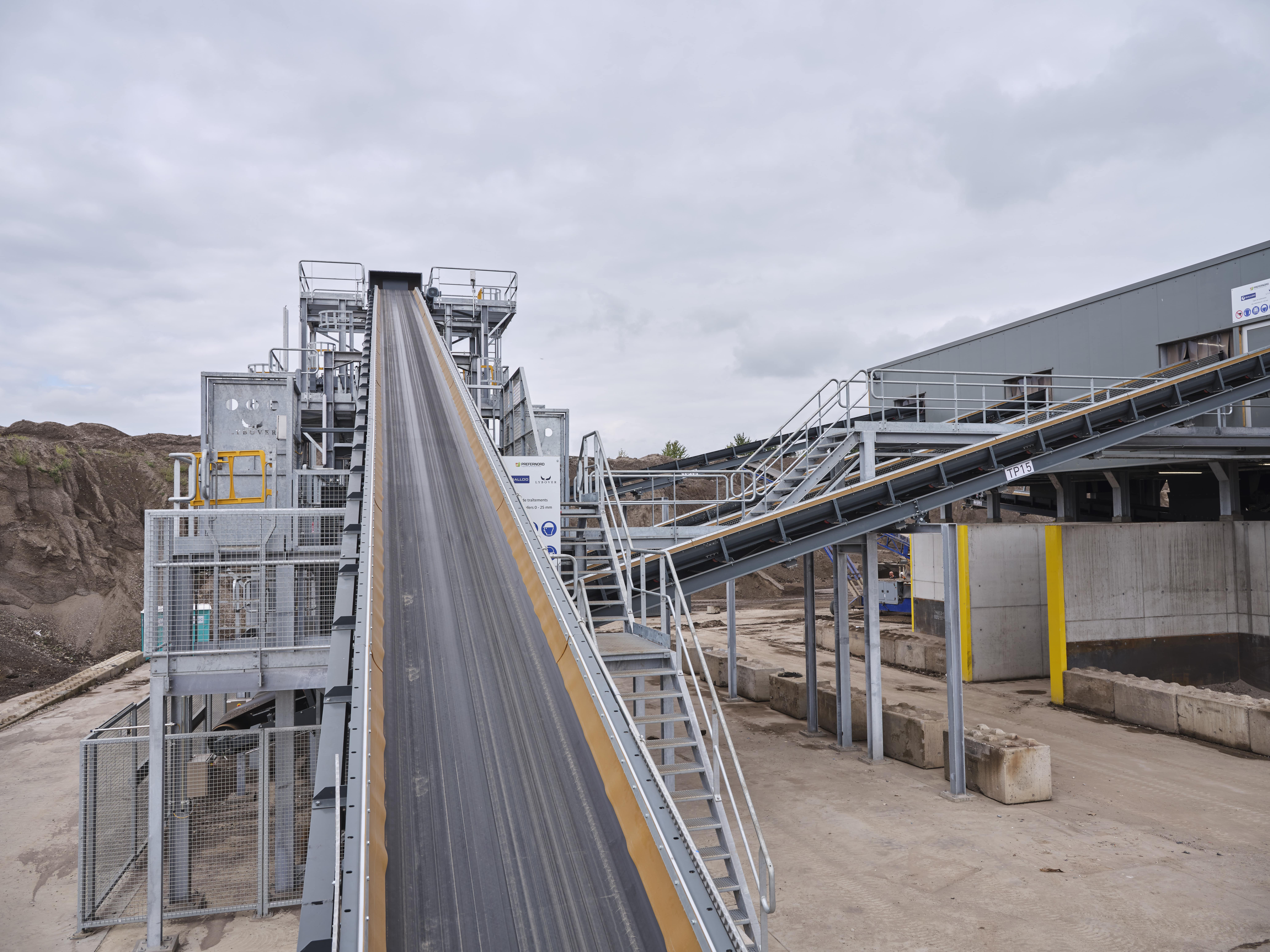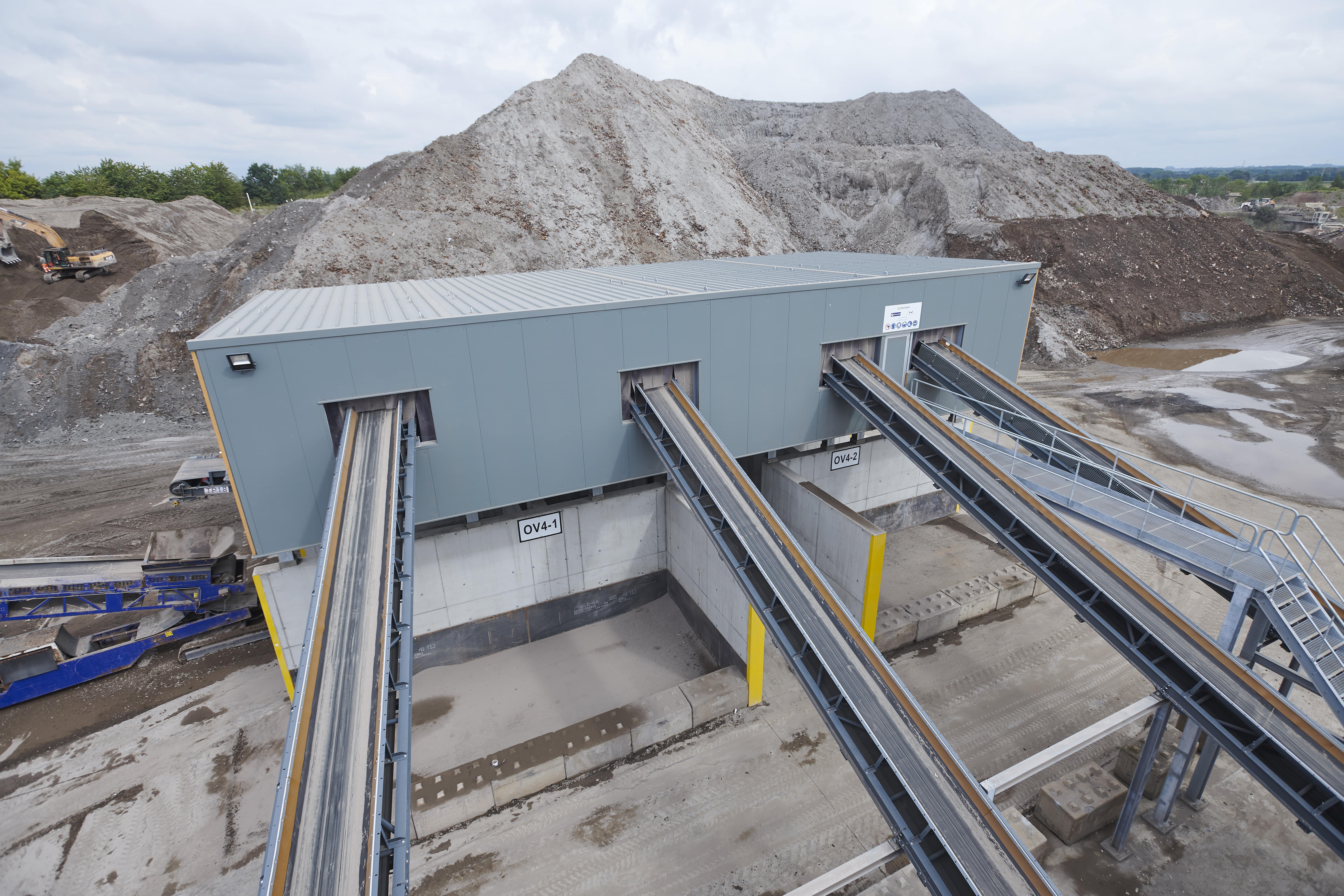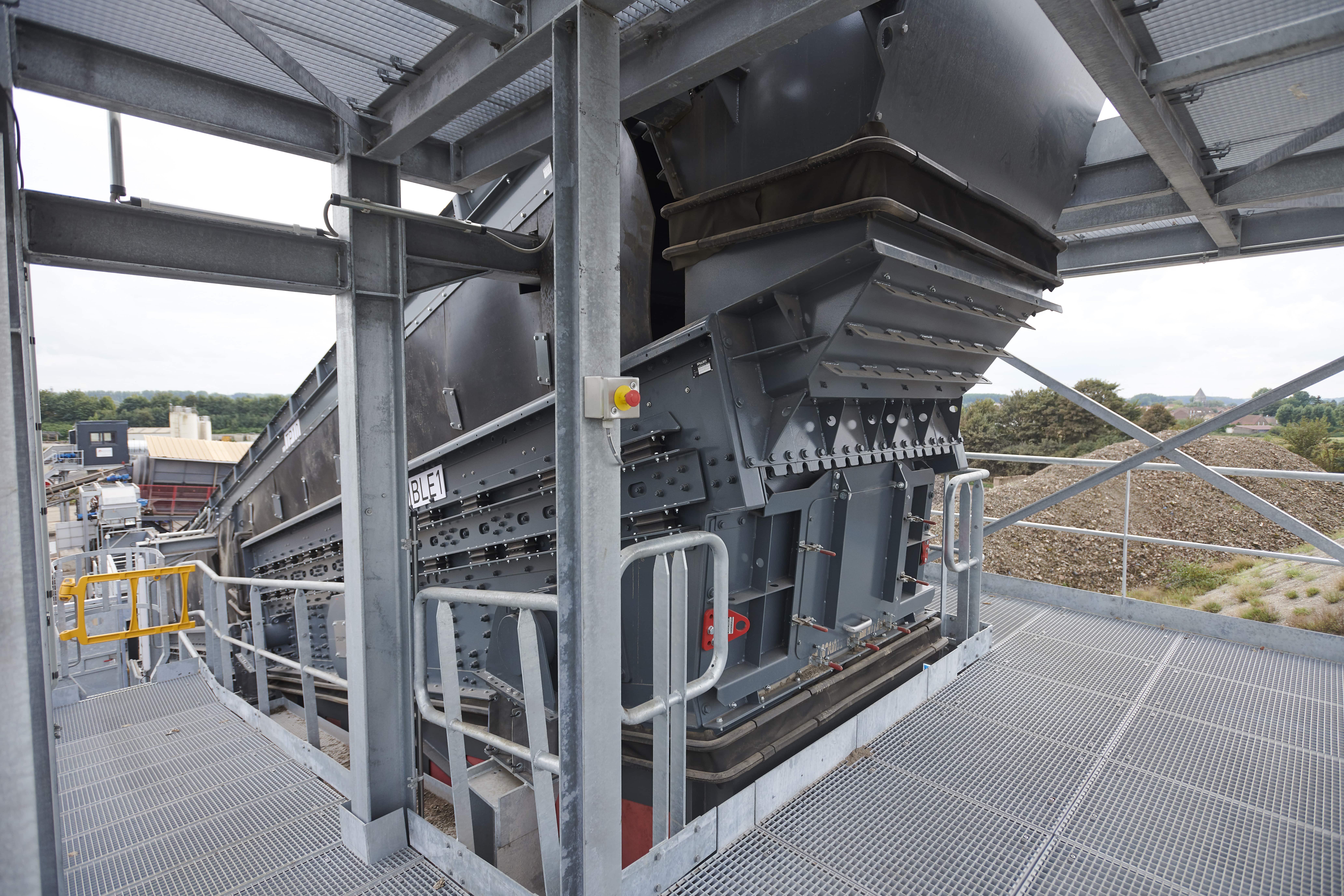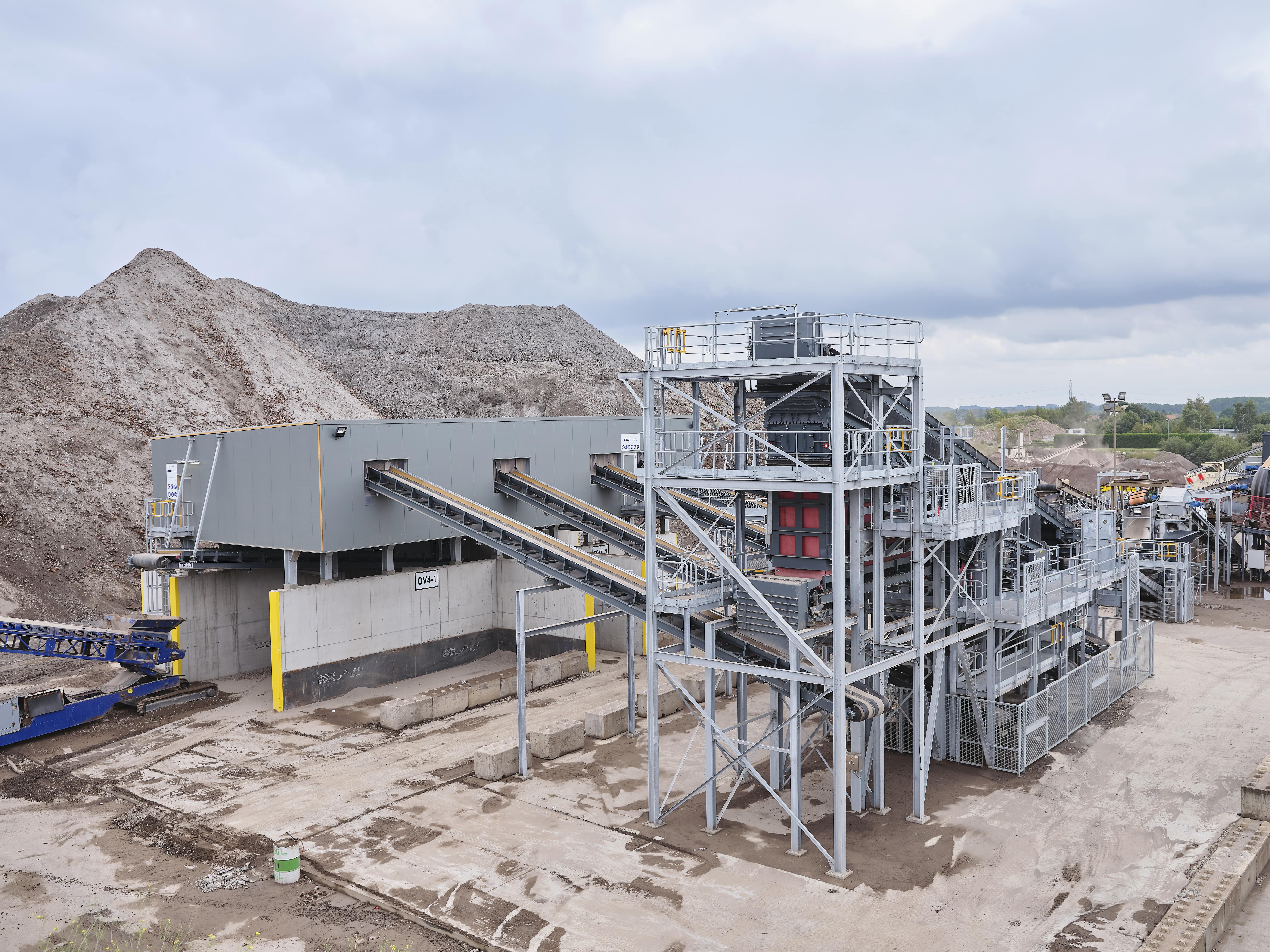In order to recover residual metals from incinerator ash more efficiently, Pre Fer Nord was looking for a partner to optimise their existing recycling plant. They turned to Galloo, a recycling company of ferrous and non-ferrous metals. They drew up the process and entrusted its realisation to Lybover.
Thanks to our extensive product and machine knowledge, we were able to optimise Pre Fer Nord’s recycling plant. Thanks to the new installation, ferrous and non-ferrous metals are now sorted even more efficiently and accurately. This also means that fewer materials have to be landfilled, which is always a win.
The right process and machine knowledge
The aim of the plant is to process incineration ash more efficiently. Stones, large and small pieces of metal are reduced in the plant to below a certain size. In a subsequent installation, the iron and non-ferrous particles (copper, aluminium, zinc, bronze) are recovered. The stone grit is reused in concrete, stabilisers or as an underlay for roads. The metals go to Galloo, where they are improved, purified and delivered to smelters.
In order to translate processes from paper to a working installation, Galloo has often relied on Lybover’s expertise. And with positive results. “We have the right process and machine knowledge in house and so we got the chance to build this installation too”, says Bart Vanpoucke, Business Unit Manager at Lybover RECYCLING.



Tailor-made and extensively tested
“The installation is completely customised,” explains Bart. “We will look internally and together with our partners at which machines are suitable for the process and for the specific material. Conveyor belts and magnets, everything is considered in function of the material. Knowledge of materials is therefore very important. We have that experience at Lybover.”
It is also very important to talk to the customer. “We have to understand what the customer wants. What material needs to be recycled? What information is available? What does the customer want to achieve with the material? We start working with that information. We simulate the entire process. We show the physical result of our tests to the customer and explicitly check whether that is the result they expect.”
“The project development went very smoothly. The cooperation between the project leader, design engineer, service engineer and mechanics went very well. This enabled us to build a beautiful installation within the timing of one year. Even after the start-up, we stay in contact with the customer to see how we can support them with periodic inspections, preventive maintenance and spare parts.”
Quality through long-term partnerships
Lybover has a lot of experience in building recycling lines. For the machines themselves, we rely on a number of regular partners. “Steinert is a German company that builds separation machines,” explains Bart. “We have had a partnership with them for a long time. We work very closely together and often exchange information. This also allows us to offer greater performance and more extensive support. Spaleck, another German company, does everything related to vibration technology for transport and screening. We have also been working with them for a long time. So we know very well what their machines can do. So we are once again getting the maximum performance out of them.
“At Lybover we make the conscious decision not to have our own test centre. It makes much more sense to do the testing at our partners. They are the experts on their own machines. We often invite the customer to these tests as well. From the very beginning, we have also been very open about the fact that we work with these machine partners from the very beginning. They are usually even present when the project is signed. We notice that customers really appreciate this. They do not like buying an empty box. The more information they get beforehand, the greater their confidence.”
The evolution of recycling
Recycling has evolved greatly in recent years. “In each material category – metals, plastics, wood – we see an evolution towards more advanced separation,” Bart explains. “The evaluation of the separation process has therefore become very difficult. That is why we do so many tests and also work closely with the customer to create a customised installation.”
“At Pre Fer Nord, for example, there was an old system that was no longer up to current standards. The fact that there is now a completely new installation gives me great satisfaction. Every material that we don’t have to landfill is a win. The fact that I can contribute to the better use of materials is very important to me. At Lybover you really get the chance to become an expert in what you do. That freedom ensures that I am stimulated and stay stimulated. That is really fascinating and challenging.
